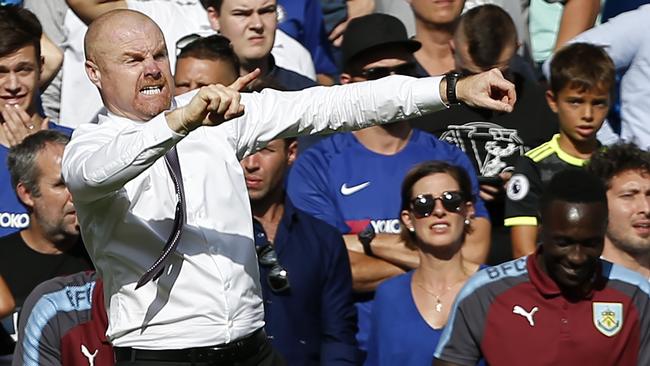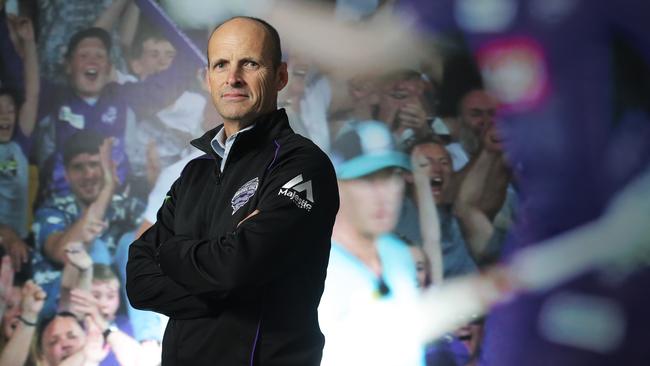Sports heroes have some lessons in leadership for business
It’s a cliche but business still looks to sports for recipes for succesful leadership. Here’s why.

Netflix documentary The Last Dance brought basketballer Michael Jordan to a vast new audience, but it also has revealed some lessons about sports leadership in a new age.
As Tom Young, a British sport psychiatrist and author of a new book, The Making of a Leader, says: “Whether (Jordan’s style) would be a leadership style for today’s sport is something that I would question. He was driven, aggressive, competitive, dominant. He wants to win and he’s going to win and he will take the responsibility to do that.
“Reading between the lines of the documentary and reading books about that period, he probably crossed the lines a few times. There is an ongoing debate where people say, ‘Yes but he won, they won.’ I get that argument because sport is about winning, but I think you can achieve results and drive your teammates and take responsibility and push people without going over the line. I am not sure it would work today and he probably got away with it because of how good he was.”

Jordan had the X factor, Young says on a call from his home in Manchester. He was a superstar in the Chicago Bulls, a highly competitive individual player in a team sport who was also a risk-taker and a leader. Jordan is not profiled in Young’s book, which is subtitled What Elite Sport Can Teach Us About Leadership, Management and Performance, but seven other elite sports people — all involved in team sports — are analysed to extract the attributes behind their success. Young is happy to talk about Jordan but he says the last word on leadership from the Bulls comes not from Jordan but from his teammate Steve Kerr.
Kerr was a rotational player across a 15-year NBA career who went on to a stellar role as head coach of the Golden State Warriors in the NBA. His is a compelling professional and personal story as the underdog who was a third-tier college recruit who ground his way to become a key member of the Bulls team. Clever, political and personable, he’s a true leader to Young, who describes an interaction between Kerr and Warriors star Steph Curry as he encourages Curry to get back in the game after a “rather ambitious shot from 60 feet”.
Kerr tells a disconsolate Curry: “You’re doing great stuff out there. The tempo is so different when you’re in the game. Everything you generate is so positive. You’re doing great. Carry on, my son.”
There’s much more in the interchange — which you can find on Twitter and other social media sites. Young calls it a masterclass in coaching. “You can see the connection between them, the power of relationships,” he says.
Relationship is key for Young, who says: “All the people I interviewed really care.
“They might be quite competitive, they can be tough and aggressive, but there is an undercurrent of compassion and empathy.”

Young began his research and interviews several years ago as part of his academic work but has turned it into a handbook for leaders in business.
He admits it’s something of a cliche, this idea that we look to sporting greats for tips on leading multi-million-dollar companies with hundreds or thousands of staff, but he believes there is much to be learned by both sides — sport and business — from the other. His own business is split 50-50 between sports and business clients.
“There is an assumption that great sportspeople will become great leaders but the people in the book, they weren’t all your superstar players,” he says.
“Sometimes the superstar athletes, especially in an individual sport like long-distance running or golf where someone is so focused, so driven, selfish in many ways, (don’t translate well to business). They have to step into an organisation where it is not about you, it is about something that is bigger than you and it’s about building relationships and connecting with other people.”

Of the leaders interviewed he says: “What’s interesting is that they are not perfect. Sometimes we have this idea of a mythical leader who comes in and galvanises people. There are people who can do that but actually most leaders are human. The people I interviewed describe themselves as sponges. They have observed the coaches and people around them and have taken versions of other people’s leadership styles and created their own.”
The seven are: Michael Maguire, rugby league; Stuart Lancaster, rugby union; Gary Kirsten, cricket; Roberto Martinez, football (soccer); Ashley Giles, cricket; Dan Quinn, American football, and Sean Dyche, football (soccer).
The highly competitive nature of some sports stars — think Jordan — suggests that leadership is all about winning, but Young argues you can be a great leader without your team winning the grand final.
“Only one team holds up the trophy,” he says. “So it’s about what success looks like for that organisation.” Sometimes success is about longevity and the sustainability of a team or company. “You don’t have to win to lead but there has to be an element of performance and achievement,” Young says.

Along with relationships, elite sport is about resilience, he argues. It’s much more subtle than simply “bouncing back and thinking positively” and it is definitely not something to learn in an hour-long session on resilience. Good leaders also must demonstrate a congruence between their values and behaviour and the values written on the walls or the whiteboard of the company or organisation. Leaders need to achieve buy-in from followers — or as cricket’s Kirsten puts it in the book: “You need to win the changing room and have a way about you that is endearing to other people.”
Endearing is not a common word in leadership literature but genuine is and Young argues his subjects have a “teaching mentality” — a genuine interest in developing people. “They want to leave a mark on people’s lives. It’s not all about winning. That’s what stood out to me,” he says.
Coaches and leaders don’t have to be friends with their followers but they need to build relationships that may have nothing to do with socialising outside work or the sports field. Young says loyalty is not the holy grail and leaders have to recognise that “all these people have their own career goals, their own journey. They may want a portfolio career. They may not stay in a business for decades, they may want to move on. So there has to be a congruence between goals. It’s not all about loyalty.”

There’s no single personality type that makes a great sports star or leader, he says. And he questions elements of the “hothouse” approach to development. In Britain, the young players who come through the training systems in soccer are “very structured and great at following instructions and tactics”.
“They are diligent, they are detailed, they are driven and always wanting to be better,” he says.
“But at the same time we are creating people who may be a little afraid to fail. They might not take that risky decision, they might not take control.
“In team sports you need a blend of personality — those who effectively do what they are told, who are really good at execution, trusted, but you also need the X factor player like Michael Jordan who is not an instruction follower but who will see something and seize upon it.
“I don’t think that there is a perfect personality. What you find is that there a real spectrum of individual styles. But there has to be a desire and a drive.”

Can highly competitive people — like Jordan, whose will to win is legendary — go too far?
“There’s nothing bad about being competitive,” Young says. “It’s not a negative trait but it depends what else is in the mix. You can be highly competitive and have a real compassion, even if that is learned.”
The Making of a Leader: What Elite Sport Can Teach Us About Leadership, Management and Performance (Hachette Australia, $34.99).








To join the conversation, please log in. Don't have an account? Register
Join the conversation, you are commenting as Logout